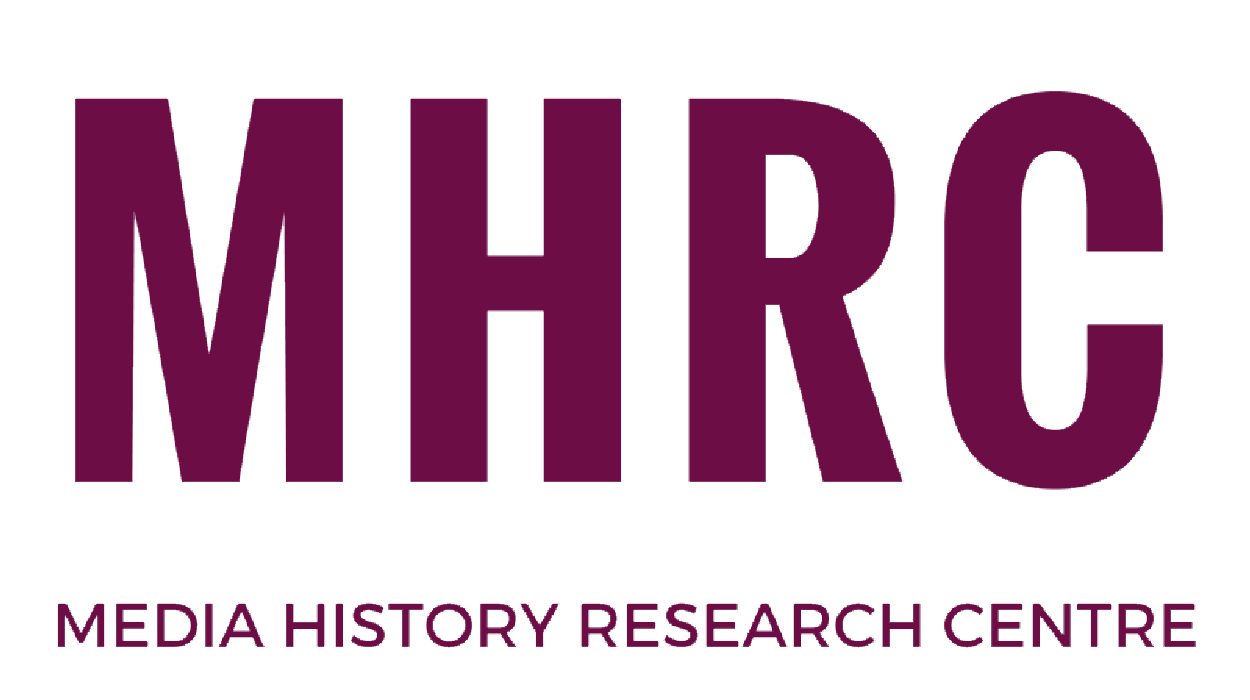Directors
Professor, Communication Studies
Charles R. Acland is the author of Swift Viewing: The Popular Life of Subliminal Influence and coeditor, with Haidee Wasson, of Useful Cinema. He is co-director of Project Arclight, with Eric Hoyt
Associate Professor, History
Elena Razlogova specializes in the cultural history of the United States, the Soviet Union, and the Cold War. She is the author of The Listener's Voice: Early Radio and the American Public (2011) and co-editor of “Radical Histories in Digital Culture” issue of the Radical History Review (2013). She has published articles and book chapters on U.S. radio history, music recommendation algorithms, and film translation in the Soviet Union. She was an executive producer on the digital project Gulag: Many Days, Many Lives. She is currently working on several projects: a history of simultaneous film translation and transnational networks at Soviet film festivals; a history of WFMU’s transition from a offbeat New York area radio station to a leader in the free online music movement; and a history of the morality of snitching in the United States and the Soviet Union during the Cold War.
Faculty Members
Professor, Communication Studies
Charles R. Acland is co-director of the Media History Research Centre. He is the author of Swift Viewing: The Popular Life of Subliminal Influence and coeditor, with Haidee Wasson, of Useful Cinema. He is co-director of Project Arclight, with Eric Hoyt
Professor Emeritus, Communication Studies, Concordia University
William Buxton has received a Rhodes Scholarship, two DAAD (German Exchange) Fellowships, a Shastri (Canada-India) Fellowship, and was scholar-in-residence at the Rockefeller Archive Center. He has taught at Laurentian University, University of New Brunswick, Simon Fraser University, and Concordia University (since 1990).
Associate Professor, Cinema Studies, Concordia University Luca Caminati's research deals with post-colonial theory and orientalist discourses in post-WWII Italian cinema and media, with a specific interest in non-fiction film and media arts. In 2009-2010 he was the recipient of the Paul Mellon/National Endowments for the Humanities "Rome Prize", a residential fellowship awarded by the American Academy in Rome. His current SSHRC-funded project, titled Traveling Auteurs: the Geopolitical Afterlife of Postwar Italian Art Cinema, investigates the "Third World" documentary films of Roberto Rossellini, Pier Paolo Pasolini, and Bernardo Bertolucci. He is currently serving as associate editor for the journal Italica.concordia.academia.edu/LucaCaminati

Professor, Communication Studies Monika Kin Gagnon is author of Other Conundrums: Race, Culture and Canadian Art (2000), 13 Conversations about Art and Cultural Race Politics (2002) with Richard Fung, and co-editor of Reimagining Cinema: Film at Expo 67 (2014) with Janine Marchessault. In Search of Expo 67 (with Lesley Johnstone) is forthcoming in 2019.
Associate Professor, Communication Studies
Fenwick McKelvey's work has appeared in numerous journals, including Television and New Media, the International Journal of Communication, the European Journal of Cultural Studies, the Canadian Journal of Communication, Global Media Journal, and the Journal of Information Technology and Politics. He is coauthor of The Permanent Campaign: New Media, New Politics. His book Media Daemons is currently under contract with the University of Minnesota Press.
Professor, French, Concordia University
 Assistant Professor, Cinema
Joshua Neves is Assistant Professor and Canada Research Chair at Concordia University, where he teaches in the Program in Film and Moving Image Studies and is the Director of the Global Emergent Media (GEM) Lab (https://www.globalemergentmedia.com/). His research focuses on digital media, cultural and political theory, and problems of development and legitimacy, with a particular focus Asia and the Global South. He current book project, tentatively titled Smart Bodies, examines the mainstreaming of performance enhancing technologies—smart drugs to smartphones—paying close attention to changing bodily capacities and new demands for hyperbolic performance. He is the co-editor (with Bhaskar Sarkar) of Asian Video Cultures: In the Penumbra of the Global (Duke University Press, 2017) and his monograph, Faking Globalization: Beijing’s Digital Urbanism and the Chimera of Legitimacy, is forthcoming from Duke in 2019. His work has also appeared or Social Text, Discourse, Film Quarterly, Sarai, Cinema Journal, The Media Fields Journal, Rethinking Chinese Television, A Companion to Documentary Film History, among others.
Assistant Professor, Cinema
Joshua Neves is Assistant Professor and Canada Research Chair at Concordia University, where he teaches in the Program in Film and Moving Image Studies and is the Director of the Global Emergent Media (GEM) Lab (https://www.globalemergentmedia.com/). His research focuses on digital media, cultural and political theory, and problems of development and legitimacy, with a particular focus Asia and the Global South. He current book project, tentatively titled Smart Bodies, examines the mainstreaming of performance enhancing technologies—smart drugs to smartphones—paying close attention to changing bodily capacities and new demands for hyperbolic performance. He is the co-editor (with Bhaskar Sarkar) of Asian Video Cultures: In the Penumbra of the Global (Duke University Press, 2017) and his monograph, Faking Globalization: Beijing’s Digital Urbanism and the Chimera of Legitimacy, is forthcoming from Duke in 2019. His work has also appeared or Social Text, Discourse, Film Quarterly, Sarai, Cinema Journal, The Media Fields Journal, Rethinking Chinese Television, A Companion to Documentary Film History, among others.
 Professor, Film Studies, Concordia University
Catherine Russell is Distinguished Professor of Film Studies at the Mel Hoppenheim School of Cinema at Concordia University in Montreal, Canada. She is the author of five books, including Experimental Ethnography: The Work of Film in the Age of Video (1999), and Archiveology: Walter Benjamin and Archival Film Practices (2018). She has published articles on experimental film, Japanese film, and Hollywood cinema in Cinema Journal, Camera Obscura, Criticism, Visual Anthropology, Scope, Transformations, Framework, and she is a contributing writer for Cineaste Magazine. catherinerussell.ca
Professor, Film Studies, Concordia University
Catherine Russell is Distinguished Professor of Film Studies at the Mel Hoppenheim School of Cinema at Concordia University in Montreal, Canada. She is the author of five books, including Experimental Ethnography: The Work of Film in the Age of Video (1999), and Archiveology: Walter Benjamin and Archival Film Practices (2018). She has published articles on experimental film, Japanese film, and Hollywood cinema in Cinema Journal, Camera Obscura, Criticism, Visual Anthropology, Scope, Transformations, Framework, and she is a contributing writer for Cineaste Magazine. catherinerussell.ca
Associate Professor, Cinema, Concordia University
 Associate Professor, Film Studies, Concordia University
Marc Steinberg is Associate Professor of Film Studies at Concordia University. He is the author of Anime’s Media Mix: Franchising Toys and Characters in Japan (University of Minnesota Press, 2012) and its Japanese expanded version Why is Japan a “Media Mixing Nation”? (Naze Nihon wa “media mikkusu suru kuni” nano ka) (Tokyo: Kadokawa, 2015). He is the co-editor of Media Theory in Japan (Duke University Press, 2017), and co-editor of a special issue of Asiascape: Digital Asia on “Regional Platforms.” His book, The Platform Economy: How Japan Transformed the Commercial Internet is forthcoming from University of Minnesota Press in 2019.
Associate Professor, Film Studies, Concordia University
Marc Steinberg is Associate Professor of Film Studies at Concordia University. He is the author of Anime’s Media Mix: Franchising Toys and Characters in Japan (University of Minnesota Press, 2012) and its Japanese expanded version Why is Japan a “Media Mixing Nation”? (Naze Nihon wa “media mikkusu suru kuni” nano ka) (Tokyo: Kadokawa, 2015). He is the co-editor of Media Theory in Japan (Duke University Press, 2017), and co-editor of a special issue of Asiascape: Digital Asia on “Regional Platforms.” His book, The Platform Economy: How Japan Transformed the Commercial Internet is forthcoming from University of Minnesota Press in 2019.
 Professor, Communication Studies, Concordia University
van Wyck is working on a number of projects related to his new monograph, The Angel Turns: Memos for the End of the Holocene. This work completes a trilogy of nuclear-themed books, beginning with Signs of Danger: Waste, Trauma and Nuclear Threat in 2005, followed by the Highway of the Atom in 2010. At the moment he is working to understand the technical apparatus involved with the historical use of the cloud chamber to photograph radioactive decay; the (perhaps apocryphal) pre-history of photography in the figure of keraunography; the use of uranium in early colour photography; and the use of Lycopodium sp. (Ground Pine) in early flash photography.
Professor, Communication Studies, Concordia University
van Wyck is working on a number of projects related to his new monograph, The Angel Turns: Memos for the End of the Holocene. This work completes a trilogy of nuclear-themed books, beginning with Signs of Danger: Waste, Trauma and Nuclear Threat in 2005, followed by the Highway of the Atom in 2010. At the moment he is working to understand the technical apparatus involved with the historical use of the cloud chamber to photograph radioactive decay; the (perhaps apocryphal) pre-history of photography in the figure of keraunography; the use of uranium in early colour photography; and the use of Lycopodium sp. (Ground Pine) in early flash photography.
 Professor, Cinema
Professor, Cinema
Haidee Wasson's published work concentrates on cinema, but explores the broader relations among moving images, technology, art, and culture. Her recent work focuses on film technologies, with a particular interest in the ways that the museum, industry, and the military have provided platforms for new ideas about, and uses of, cinema. Her current project specifically examines the history portable projectors and their importance for expanding what films look like, how they are seen and used, and why we watch them. She lectures internationally on these and other subjects.
Associate Professor, English
Darren Wershler is the Concordia University Research Chair in Media and Contemporary Literature and Co-Director of the Media History Research Centre. He is currently writing THE LAB BOOK: Situated Practices in Media Studies (with Jussi Parikka and Lori Emerson), and a book on Minecraft (with Bart Simon).
Affiliate Members
Professor, Communication and Art History, McGill University
Darin Barney is the Grierson Chair in Communication Studies at McGill University. He is the author of several scholarly works, including One Nation Under Google: Citizenship in the Technological Republic (2007 Hart House Lecture); Communication Technology: The Canadian Democratic Audit (UBC Press: 2005); The Network Society (Polity Press: 2004); and Prometheus Wired: The Hope for Democracy in the Age of Network Technology (University of Chicago Press 2000). He is co-editor of several books and journal editions, including The Participatory Condition (University of Minnesota Press: 2016, with Coleman, Ross, Sterne and Tembeck). Barney’s current research focuses on materialist approaches to media and communication, infrastructure and radical politics.
 Postdoctoral Fellow, Université de Montréal,
Michael Nardone is an FRQSC postdoctoral fellow in the Département des littératures de langue française at the Université de Montréal, where he works with the research group of the Canada Research Chair in Digital Textualities. The author of two books of poetry – THE RITUALITES (2018) and TRANSACTION RECORD (2014) – he is also managing editor of AMODERN, an open access scholarly journal dedicated to media, culture, and poetics. Nardone's research focuses on the intersection of poetics and media historical methodologies within the overlapping fields of literature, media, performance, and sound. His writings, dialogues, and editorial projects have been published widely and are archived at http://soundobject.net.
Postdoctoral Fellow, Université de Montréal,
Michael Nardone is an FRQSC postdoctoral fellow in the Département des littératures de langue française at the Université de Montréal, where he works with the research group of the Canada Research Chair in Digital Textualities. The author of two books of poetry – THE RITUALITES (2018) and TRANSACTION RECORD (2014) – he is also managing editor of AMODERN, an open access scholarly journal dedicated to media, culture, and poetics. Nardone's research focuses on the intersection of poetics and media historical methodologies within the overlapping fields of literature, media, performance, and sound. His writings, dialogues, and editorial projects have been published widely and are archived at http://soundobject.net.
Associate Professor, Université du Québec à Montréal
Katharina Niemeyer studied European media culture (Bauhaus Universität Weimar, Université Lyon 2) and received a PhD in social and economic sciences from the University of Geneva, Switzerland with a thesis on television news, historiography and memory. Her research focuses mainly on media and their relations to memory, history and nostalgia. After having edited the volume Media and Nostalgia. Yearning for the past, present and future in 2014 (Palgrave Macmillan), Katharina Niemeyer co-founded the International Media and Nostalgia Network. She is member of the editorial board of the Memory Studies journal and council member of the International Association for Media and History. www.kniemeyer.net
Professor and William Dawson Scholar, Department of Languages, Literatures, and Cultures, McGill University.
Andrew Piper directs .txtLAB, a digital humanities laboratory at McGill, and is editor of the new web-based, open-access journal, CA: Journal of Cultural Analytics. His work focuses on applying the tools and techniques of data science to the study of literature and culture, with a particular emphasis on questions of cultural capital, institutional prestige, and intellectual diversity.
Associate Professor,
William Dawson Scholar of Feminist Media Studies, McGill University
Carrie Rentschler’s research examines the relationship between media making, social movement activism, and the construction of new political subjectivities. She studies this relationship in the context of movements against gender and racial violence, experiences of victimization and social trauma, and structures of feminist organizing online and via social media. She is author of Second Wounds: Victims’ Rights and the Media in the U.S. and co-editor of Girlhood and the Politics of Place
carrierentschler.org.
Associate Professor, Communication and Art History, McGill University
Jonathan Sterne is the James McGill Chair in Culture and Technology in the Department of Art History and Communication Studies at McGill University. He is author of MP3: The Meaning of a Format (Duke 2012), The Audible Past: Cultural Origins of Sound Reproduction (Duke, 2003); and numerous articles on media, technologies and the politics of culture. He is also editor of The Sound Studies Reader (Routledge, 2012). His new projects consider instruments and instrumentalities; mail by cruise missile; and the intersections of disability, technology and perception. sterneworks.org.
Professor, Communication and Art History, McGill University
Will Straw is the author of Cyanide and Sin: Visualizing Crime in 1950s America, and the editor of numerous volumes, including Circulation and the City (with Alex Boutros), and Formes urbaines (with Anouk Bélanger and Annie Gérin). His current research focuses on the place of media within the 24-hour daily cycle, networks of production and circulation within fan cultures and media treatments of crime.
 Associate professor, Department of Communication Studies, University of Montreal
Ghislain Thibault is an Associate professor in the Department of Communication Studies at the University of Montreal. He received his PhD in 2010 from the Université de Montréal before pursuing postdoctoral work at Harvard University. Appointed as an Assistant professor at the Department of Communication Studies at Wilfrid Laurier University in 2011, he later joined the Université de Montréal in 2015. His current research project explores the conceptual and historical relationships between machines and media in mid twentieth-century theories. His recent work in the cultural and material history of media and on the history of technology has appeared in journals such as Canadian Literature and the Canadian Journal of Communication, Configurations and VIEW.
Associate professor, Department of Communication Studies, University of Montreal
Ghislain Thibault is an Associate professor in the Department of Communication Studies at the University of Montreal. He received his PhD in 2010 from the Université de Montréal before pursuing postdoctoral work at Harvard University. Appointed as an Assistant professor at the Department of Communication Studies at Wilfrid Laurier University in 2011, he later joined the Université de Montréal in 2015. His current research project explores the conceptual and historical relationships between machines and media in mid twentieth-century theories. His recent work in the cultural and material history of media and on the history of technology has appeared in journals such as Canadian Literature and the Canadian Journal of Communication, Configurations and VIEW.
Associate Professor,
Dominique Trudel holds a PhD in Communication Studies from the Université de Montréal and has completed a FQRSC-funded post-doctoral research project at New York University. Before joining Concordia University, Dominique was a researcher at the CNRS’ Institut des sciences de la communication (ISCC-CNRS) in Paris. His work has appeared in journals such as the International Journal of Communication, the Canadian Journal of Communication, Communiquer, the International Journal of Zizek Studies, and Communication.
Assistant Professor, McGill
 Theodora Vardouli holds a PhD in Design and Computation from the MIT Department of Architecture, with a minor in Science and Technology Studies. She received a Master in Architecture from the National Technical University of Athens, where she also earned a postgraduate diploma in Design-Space-Culture. As assistant professor at the Peter Guo-hua Fu School of Architecture, McGill University, Vardouli examines algorithmic techniques for representing and generating architectural space and form, their cultural meanings, historically and in present, and their operational implications for creative design. Her historical scholarship, supported from the Social Sciences and Humanities Research Council of Canada, spearheads a decentered and transactional history of architectural computation: decentered because it moves the focus away from the computer as a technological instrument and toward particular technical languages, along with the institutional and intellectual contexts in which these were developed; and transactional because it positions these technical languages at the interstices of multiple disciplines and research settings. Vardouli's pedagogical experiments include performing algorithms for representing and generating form by hand so as to become aware of, and exploit, conflicts between perceptual shape and its symbolic computational abstractions. Her upcoming project is a design research laboratory aimed at developing critical projects and artistic interventions that communicate the inner workings and lineages of common architecture software applications and fostering imagination of novel relationships between architecture and computation. Vardouli is co-editor of Computer Architectures: Constructing the Common Ground 1945-1980 (2019, Routledge Research in Design, Technology, and Society Series), a collection of essays from architectural historians, science and technology scholars and media studies scholars, that rethinks the history and historiography of architecture and the computer.
Theodora Vardouli holds a PhD in Design and Computation from the MIT Department of Architecture, with a minor in Science and Technology Studies. She received a Master in Architecture from the National Technical University of Athens, where she also earned a postgraduate diploma in Design-Space-Culture. As assistant professor at the Peter Guo-hua Fu School of Architecture, McGill University, Vardouli examines algorithmic techniques for representing and generating architectural space and form, their cultural meanings, historically and in present, and their operational implications for creative design. Her historical scholarship, supported from the Social Sciences and Humanities Research Council of Canada, spearheads a decentered and transactional history of architectural computation: decentered because it moves the focus away from the computer as a technological instrument and toward particular technical languages, along with the institutional and intellectual contexts in which these were developed; and transactional because it positions these technical languages at the interstices of multiple disciplines and research settings. Vardouli's pedagogical experiments include performing algorithms for representing and generating form by hand so as to become aware of, and exploit, conflicts between perceptual shape and its symbolic computational abstractions. Her upcoming project is a design research laboratory aimed at developing critical projects and artistic interventions that communicate the inner workings and lineages of common architecture software applications and fostering imagination of novel relationships between architecture and computation. Vardouli is co-editor of Computer Architectures: Constructing the Common Ground 1945-1980 (2019, Routledge Research in Design, Technology, and Society Series), a collection of essays from architectural historians, science and technology scholars and media studies scholars, that rethinks the history and historiography of architecture and the computer.
Student Members
 Rosa Addario is completing the last year of her Undergraduate degree in Concordia's Communications and Cultural Studies program. Her research focuses on early Canadian information technologies, particularly Telidon and other videotex/teletext services, and their importance to the larger framework of Canadian media archaeology.
Rosa Addario is completing the last year of her Undergraduate degree in Concordia's Communications and Cultural Studies program. Her research focuses on early Canadian information technologies, particularly Telidon and other videotex/teletext services, and their importance to the larger framework of Canadian media archaeology.  Sadie Couture is a digital media artist, producer, and scholar. She is a MA Candidate in Media Studies, and holds a BA in Philosophy and Gender Studies from the University of British Columbia. Her research interests include the constructions of intimacy in audio media, gendered listening practices, oral history, affect and political emotions, and the personal and institutional stewardship of digital and analog media. She co-produces COHDScast, a podcast about oral historians and their work with the Centre for Oral History and Digital Storytelling at Concordia, and her work can be seen in On this Patch of Grass: City Parks on Occupied Land (2018).
Sadie Couture is a digital media artist, producer, and scholar. She is a MA Candidate in Media Studies, and holds a BA in Philosophy and Gender Studies from the University of British Columbia. Her research interests include the constructions of intimacy in audio media, gendered listening practices, oral history, affect and political emotions, and the personal and institutional stewardship of digital and analog media. She co-produces COHDScast, a podcast about oral historians and their work with the Centre for Oral History and Digital Storytelling at Concordia, and her work can be seen in On this Patch of Grass: City Parks on Occupied Land (2018).  Tom Hackbarth is a second-year Masters student in Media Studies at Concordia University. His research analyzes the cultures of participation in Public Access Television in the United States. Prior to his graduate studies he taught media production at SPNN, a community media non-profit in Saint Paul, Minnesota.
Tom Hackbarth is a second-year Masters student in Media Studies at Concordia University. His research analyzes the cultures of participation in Public Access Television in the United States. Prior to his graduate studies he taught media production at SPNN, a community media non-profit in Saint Paul, Minnesota.  A fourth year PhD student in Communication Studies, Felicity Tsering Chödron Hamer examines the complex ways in which photographic portraits extend relationships beyond physical death. Looking at a variety of commemorative photographic objects, she explores the synthesis of memory and imagination in remembrance through photography.
A fourth year PhD student in Communication Studies, Felicity Tsering Chödron Hamer examines the complex ways in which photographic portraits extend relationships beyond physical death. Looking at a variety of commemorative photographic objects, she explores the synthesis of memory and imagination in remembrance through photography.  Eileen Mary Holowka is a writer, game dev, and PhD student. Her current research focuses on feminist social media practices, "sick women," and vulnerable acts of resistance. She has published on self-imaging, Instagram, online affective labour, and the intersections of media and trauma. Her most recent project, circuits (2018), is a digital narrative about the difficult act of narrating sexual trauma within institutional spaces and can be played for free online.
Eileen Mary Holowka is a writer, game dev, and PhD student. Her current research focuses on feminist social media practices, "sick women," and vulnerable acts of resistance. She has published on self-imaging, Instagram, online affective labour, and the intersections of media and trauma. Her most recent project, circuits (2018), is a digital narrative about the difficult act of narrating sexual trauma within institutional spaces and can be played for free online.  Philipp Dominik Keidl is a PhD candidate in Film & Moving Image Studies at Concordia University in Montreal. His research examines the material culture of cinema and institutional and technological shifts in moving image archiving, preservation, and exhibition. His dissertation project Plastic Heritage: Fans and the Making of History examines historiography as fan practice, including case studies on publication projects, restoration tutorials, and fan-curated exhibitions. Philipp holds an MA in ‘Preservation and Presentation of the Moving Image’ from the University of Amsterdam, and previously worked at the Bundesarchiv-Filmarchiv and the Deutsche Kinemathek - Museum für Film und Fernsehen, both in Berlin, and the Deutsches Filmmuseum in Frankfurt/Main.
Philipp Dominik Keidl is a PhD candidate in Film & Moving Image Studies at Concordia University in Montreal. His research examines the material culture of cinema and institutional and technological shifts in moving image archiving, preservation, and exhibition. His dissertation project Plastic Heritage: Fans and the Making of History examines historiography as fan practice, including case studies on publication projects, restoration tutorials, and fan-curated exhibitions. Philipp holds an MA in ‘Preservation and Presentation of the Moving Image’ from the University of Amsterdam, and previously worked at the Bundesarchiv-Filmarchiv and the Deutsche Kinemathek - Museum für Film und Fernsehen, both in Berlin, and the Deutsches Filmmuseum in Frankfurt/Main.  Maggie is an MA candidate in Media Studies at Concordia University. Her research focuses on the transformation of the cultural industry of pornography through platformization. You can read her recent work, Faking It: Deepfake Porn and Moral Panic, at Pause Button.
Maggie is an MA candidate in Media Studies at Concordia University. Her research focuses on the transformation of the cultural industry of pornography through platformization. You can read her recent work, Faking It: Deepfake Porn and Moral Panic, at Pause Button.  Zach Melzer is a doctoral candidate in Film & Moving Image Studies at Concordia University. His research combines media studies with architecture and urban studies in order to investigate the regulations and infrastructures of moving image technologies and cultures in Piccadilly Circus (London), Times Square (NYC), Yonge-Dundas Square (Toronto), and Quartier des Spectacles (Montréal). His work is published or forthcoming in Canadian Journal of Film Studies, The Routledge Companion to Urban Media and Communication, Écranosphère, and Synoptique: An Online Journal of Film and Moving Image Studies.
Zach Melzer is a doctoral candidate in Film & Moving Image Studies at Concordia University. His research combines media studies with architecture and urban studies in order to investigate the regulations and infrastructures of moving image technologies and cultures in Piccadilly Circus (London), Times Square (NYC), Yonge-Dundas Square (Toronto), and Quartier des Spectacles (Montréal). His work is published or forthcoming in Canadian Journal of Film Studies, The Routledge Companion to Urban Media and Communication, Écranosphère, and Synoptique: An Online Journal of Film and Moving Image Studies.  Abbie 'spoopy' Rappaport is an INDI Masters student researching the esports community for Super Smash Bros. Melee (SSBM). Her thesis will aim to form an interdisciplinary ethnography for the Smash community through drawing and writing, combining her fine arts background and gaming experiences with other research methods. The ethnography will focus on the materiality of SSBM, esports as a participatory network and player studies.
Abbie 'spoopy' Rappaport is an INDI Masters student researching the esports community for Super Smash Bros. Melee (SSBM). Her thesis will aim to form an interdisciplinary ethnography for the Smash community through drawing and writing, combining her fine arts background and gaming experiences with other research methods. The ethnography will focus on the materiality of SSBM, esports as a participatory network and player studies.  Mara Rodriguez holds a BA in History from the Autonomous Metropolitan University in Mexico City. She is currently a Masters student in the History Department at Concordia University under the supervision of Dr. Elena Razlogova. Her almost 10 years of experience as a classical cello performer inspired her to focus on sound studies and history. She specializes in studying the transformation of symbolic systems around acoustic perception in Mexico City during the appearance of the first sound-reproduction technologies. She collaborates with RESEMX, an interdisciplinary research group interested in studying sound and hearing in Mexico.
Mara Rodriguez holds a BA in History from the Autonomous Metropolitan University in Mexico City. She is currently a Masters student in the History Department at Concordia University under the supervision of Dr. Elena Razlogova. Her almost 10 years of experience as a classical cello performer inspired her to focus on sound studies and history. She specializes in studying the transformation of symbolic systems around acoustic perception in Mexico City during the appearance of the first sound-reproduction technologies. She collaborates with RESEMX, an interdisciplinary research group interested in studying sound and hearing in Mexico.  Ryan Scheiding is a PhD candidate in the Communication Studies Program at Concordia. He is also affiliated with the Technoculture, Art and Games (TAG) research lab, the mlab and the Media History Research Centre (MHRC) at Concordia. Prior to joining the program, he received MAs at the University of Waterloo in History and at York University in Communication & Culture and a graduate diploma in Asian Studies from the York Centre for Asian Research (YCAR). His research is primarily concerned with the collective memory of the atomic bombings of Hiroshima and Nagasaki as expressed through video games, especially Fallout and Resident Evil. He is also the writer/ director of Nagasaki Kitty, a twine game based on the experiences of atomic bomb victims. In his past studies, he has focused on collective memory practices, legacies of propaganda in media and World War II Japanese history.
Ryan Scheiding is a PhD candidate in the Communication Studies Program at Concordia. He is also affiliated with the Technoculture, Art and Games (TAG) research lab, the mlab and the Media History Research Centre (MHRC) at Concordia. Prior to joining the program, he received MAs at the University of Waterloo in History and at York University in Communication & Culture and a graduate diploma in Asian Studies from the York Centre for Asian Research (YCAR). His research is primarily concerned with the collective memory of the atomic bombings of Hiroshima and Nagasaki as expressed through video games, especially Fallout and Resident Evil. He is also the writer/ director of Nagasaki Kitty, a twine game based on the experiences of atomic bomb victims. In his past studies, he has focused on collective memory practices, legacies of propaganda in media and World War II Japanese history.  Kalervo A. Sinervo is an Interdisciplinary Humanities PhD Candidate at Concordia’s Centre for Interdisciplinary Studies in Society and Culture, where his primary interests lie in asking questions of how political economy and technological affordance shape contemporary culture. His research covers an array of fields, including transmedia, media theory, user interface, social media, and literature, but the bulk of his work falls into comics studies and game studies. Kalervo’s dissertation uses the Batman franchise and Gotham City to look at how transmedia strategy is reshaping modern narrative and inflecting the design of open-world videogame spaces, and his next project looks at how comic and fan conventions operate in a transmedia milieu and balance relationships among municipal, commercial, and artistic stakeholders. From 2014-2018, Kalervo taught the Graphic Novel survey course in the Concordia English Department, and during the same period he also served as Vice President of Communications for the Canadian Society for the Study of Comics. Recent publications include a chapter on digitization in Make Ours Marvel (U Texas Press 2018) and an article on modding in Skyrim for Loading. Recent creative projects include a collaboration with ZUUK on the performance mystery game Missing. To keep up with Kalervo or get in touch, find him on most social media @kalervideo or visit his website badpanels.com.
Kalervo A. Sinervo is an Interdisciplinary Humanities PhD Candidate at Concordia’s Centre for Interdisciplinary Studies in Society and Culture, where his primary interests lie in asking questions of how political economy and technological affordance shape contemporary culture. His research covers an array of fields, including transmedia, media theory, user interface, social media, and literature, but the bulk of his work falls into comics studies and game studies. Kalervo’s dissertation uses the Batman franchise and Gotham City to look at how transmedia strategy is reshaping modern narrative and inflecting the design of open-world videogame spaces, and his next project looks at how comic and fan conventions operate in a transmedia milieu and balance relationships among municipal, commercial, and artistic stakeholders. From 2014-2018, Kalervo taught the Graphic Novel survey course in the Concordia English Department, and during the same period he also served as Vice President of Communications for the Canadian Society for the Study of Comics. Recent publications include a chapter on digitization in Make Ours Marvel (U Texas Press 2018) and an article on modding in Skyrim for Loading. Recent creative projects include a collaboration with ZUUK on the performance mystery game Missing. To keep up with Kalervo or get in touch, find him on most social media @kalervideo or visit his website badpanels.com. MHRC Members
